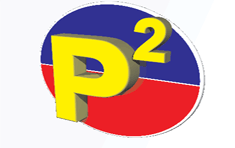The BBC discriminates…against young listeners
Posted by admin on May 26, 2010 · Leave a Comment
In 2001 Auntie passed up the chance of a DAB network for children in favour of limited output on adult speech stations R4 and R7 where research indicated kids wouldn’t listen.
The last children’s half hour on R4 was axed in June and their slots on R7 are about to be moved around yet again.
For years executives argued that children only wanted TV and pop music and wouldn’t use radio. Botched scheduling rendered this a self-fulfilling prophecy and now, following the Trust’s directive to improve things, planners are reporting that kids only want audio via PC. What utter rubbish!
How would grown-ups react if they had to access their public radio services via the internet, with its delivery limitations and extra costs? Children may not pay the licence fees but neither do grownups over the age of 75 and they aren’t forced to listen primarily on PC – although of course they can if they wish.
The BBC has a PSB remit is to provide a wide choice to all communities using all available platforms but it is acting as some kind of Internet Czar.
10 million people – a sixth of the UK population – don’t use IT but children’s needs shouldn’t be exploited to lever technology into households. “Dad, I can’t get radio and all my friends can. Please, please let’s get on line?”
Jana Bennett, Head of BBC Vision, has announced £25.5m of welcome new money for children’s programming, of which £ I m is earmarked to increase the budget for children’s websites and streamed, downloadable audio content for children, who, she says, “… expect to be served in a focused way on digital television as well as by on-demand and internet content”.
So, why not serve them in an equally focused way on digital radio, which in turn could seed new TV content?
Children require alternatives to the predominant screen and keyboard activity and parents want a wider choice in media for their young. “We can dance around the radio…” as one family put it.
Children also need culture beyond their family, schools and peer group. My late husband, Robin Ray, caught his lifelong love of music and an enjoyable career from a chance hearing of The Dream of Olwen’ on the BBC Light Programme. Radio should provide not only what we think we want but also what we never knew we could have.
I pioneered DAB for children and now run an internet service because it’s the only system I can afford.
I challenge the Trust’s approval of the BBC’s combative rather than collaborative expansion – not only on commercial grounds but also on my focus and record in providing PSB radio for children when the BBC did not.
Digital Britain – The Final Report contained this significant pledge:
“Partnership with commercial radio alongside continued cooperation over digital radio and the future of DAB”.
We invited the BBC to join hands in a children’s radio partnership two years ago but their meagre output belies how many departments hold sway over the genre, including BBC Worldwide Ltd [the CBeebies brand]; BBC Audio & Music; BBC Childrens; BBC Schools; Contractual and other others.
Various executives, including Caroline Thomson, Richard Deverell, Michael Carrington,Will Jackson, Andrew Barnes and representatives of Worldwide, have expressed kindly interest but progress has been pitifully slow and now the BBC has chosen to row its own boat up the internet creek.
Children’s radio would be a perfect platform for the ‘practical partnership’ the Trust wants. Moreover, educators confirm daily listening would underpin the £52m Action Plan to address language problems in our young and would greatly strengthen the National Year of Speech Language & Communication in 201 I – 12.
The cash is there, the carriage is there, the content is there. Wherein lies the problem?
Susan Stranks coordinates the ‘Sound Start’ working group and is director of internet radio service, abracaDABra!.



